Apr 18
The Art of Jiu-Jitsu Living: A Journey with Gracie Barra Legacy Hall Recipient Professor Jefferson Moura
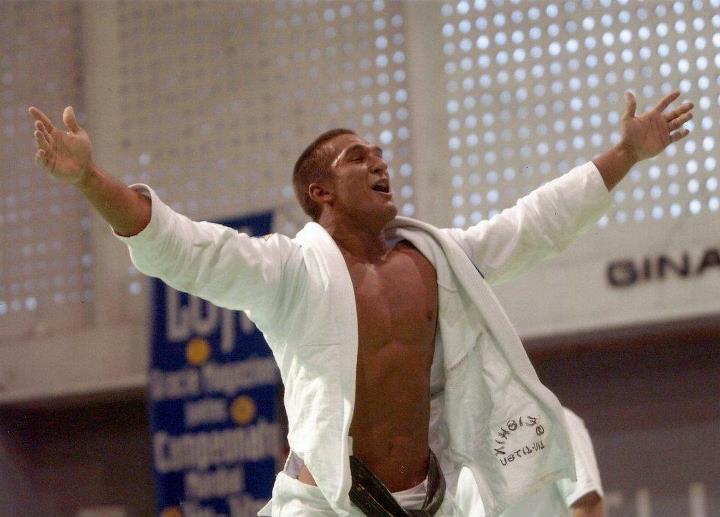
Professor Jefferson Moura might be the quintessential “Carioca” Jiu-Jitsu guy from Rio. He surfs. He loves acai after training. Athletic and most at home at the beach. Like many Cariocas - a native of Rio de Janeiro - he is friendly and full of energy. Professor Jefferson grew up living the Jiu-Jitsu lifestyle in the very place where it evolved.
We talked with Professor Jefferson, a 2023 recipient of the Athlete’s Wind Legacy Hall Award, about growing up near the beach in Rio de Janeiro, the hard training at the original Gracie Barra school in Barra da Tijuca, and how you can live the Jiu-Jitsu lifestyle wherever you live.
Professor Jefferson is a 6th-degree black belt currently living in Colorado, USA, leading the expansion of schools in that state.
Foundation of the Journey
Professor Jefferson started training in Jiu-Jitsu when he was 15 years old. Growing up in Fregueisa - a suburb of Rio de Janeiro.
His parents supported his desire to learn martial arts for self-defense, and he had already tried capoeira, judo, and boxing. When he found a school, he quickly signed up for Jiu-Jitsu classes with Master Carlos Augusto. Within 6 years, Jefferson graduated with a black belt. Shortly thereafter, he moved to start training with Master Carlos Gracie Jr. on the advice of Master Augusto due to his plan to close his school.
This was the start of Professor Jefferson’s dedication to GB. Part of his journey included went being the head instructor at GB Matriz for 11 years, where he was the first person in Rio de Janeiro to implement the GB System. As of today, Professor Jefferson remains Rio de Janeiro's GB regional director, with more than 60 schools spread across Rio de Janeiro.
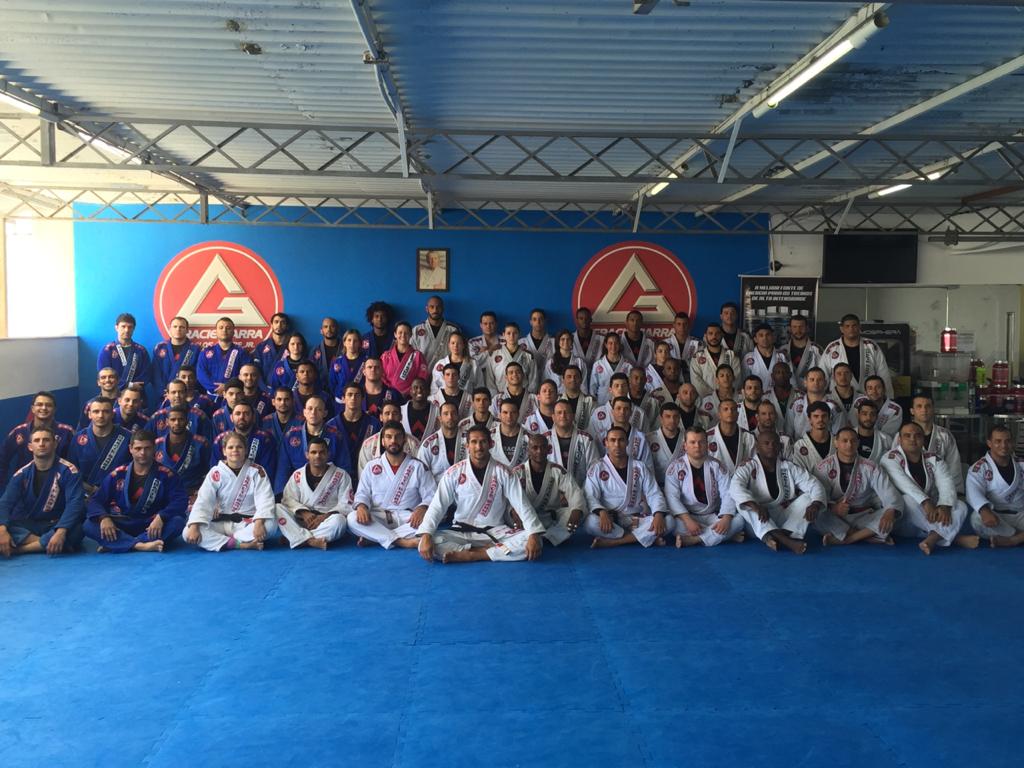
Living the Active Jiu-Jitsu Lifestyle: Beachside Reflections
The original location of Gracie Barra was located for many years just a couple of short blocks from the beach in Barra da Tijuca, Brazil. Professor Jefferson gets excited remembering growing up living near Rio de Janeiro's world-famous beaches. Sports were a major focus in his life.
"I grew up around sports all of the time. I love to move my body. I like action. I like to surf, play soccer, train Jiu-Jitsu', and do capoeira. So if you say to me, 'Hey Jefferson, here is a new sport for you to learn. Let's go!' For me, that's amazing."
Given his high energy and physical nature, it was important for Professor Jefferson to choose a career that he felt connected with, which led to him studying Physical Education at University. He was working as a personal trainer and training Jiu-Jitsu in his free time - which was made easy due to the fact that the gym he was working out of was housed in the same building as a Gracie Barra school.
When asked what the perfect day looks like for a Jiu-Jitsu practitioner living near the beach in Rio de Janeiro and training at one of the best Jiu-Jitsu schools in the world, Professor Jefferson reflected back at his time:
"It was easy for me when I have my break to go upstairs and train Jiu-Jitsu, and then come back down and do a spinning class," he laughs, "The beach was too close! During my lunch, I would get my surfboard and go surfing. That was my life for more than 10 years."
Professor Jefferson has always loved living close to the beach as he feels it helps give one more energy and creates a happier life. A lifestyle envied by Jiu-Jitsu practitioners who live in colder climates.
The evening was dedicated to training Jiu-Jitsu for a few hours upstairs at Gracie Barra. This included regular training and staying after to talk about positions and techniques. Master Carlos Gracie Jr was teaching at GB Matriz then, and everyone would sit together and listen to stories about the history of Jiu-Jitsu and the Gracie family.
"All of the black belts went together to Big Polis (a popular juice cafe located close to GB) to take acai or guarana. We would stay until 10 pm talking about Jiu-Jitsu, stuff that was happening in the Jiu-Jitsu world," Professor Jefferson looks back, "This was the life all of the time."
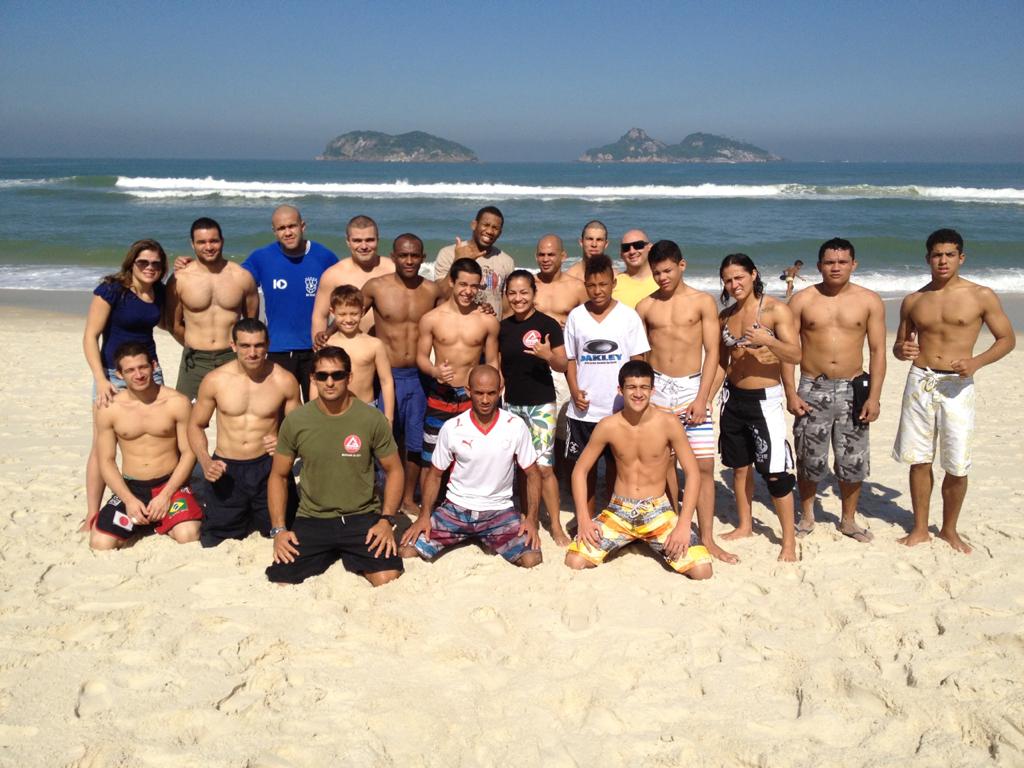
The Crucible of Competition at GB Matriz
Professor Jefferson was training at the original GB school before Jiu-Jitsu spread significantly throughout the world. A few years later, a diaspora would start to occur, with black belts from the original Gracie Barra school leaving to teach Jiu-Jitsu in the USA, Europe, and other western countries. Back then, there was a concentration of high-level black belts on the mats every day at GB Matriz.
And the training was intense and very competitive on those mats.
"At that time, every single day, when you go upstairs to train Jiu-Jitsu, you felt like, 'Oh my God, it's a new tournament!' Professor Jefferson grins. "A new Worlds tournament every time. Imagine 30 black belts on the mats. In the morning at 10 am or at night. It doesn't matter the time."
"You look on the mats. Just tough black belts. It's like World Champion there, National champion, State champion. But not only one time! Many times champion," Professor Jefferson shakes his head, "If you start training against this guy, it's like a final (of a tournament). The next guy? One more final! You don't have an easy life."
Such a competitive environment would produce very durable, mentally strong, and skilled world-class Jiu-Jitsu fighters.
"Imagine all of the time you are training with Professor Marcio Feitosa, the black belt Nino Schembri, the black belt Roleta. Many black belts at that time had the skills to stay in the top two in the world. All of the time that you go upstairs, go 100% good or don't go. Or you are going to have a bad moment in there."
Professor Jefferson explains that the environment and Jiu-Jitsu culture at that time were different than modern-day culture. It was more geared towards intense training for serious athletes and not a place for the casual hobbyist. It was an environment with a dog-eat-dog necessity to survive the intense training sessions.
"Twenty years ago, twenty-five years ago, that concept, compared with today, is totally different. There was no time to help other people to train in Jiu-Jitsu. Man, I'm going to smash you because I need training for me. I need to make myself better. I need to smash. I need to train my attacks. I need to train my sweeps. I need to train my guard pass. I don't want to lose one advantage."
And the training was intense and very competitive on those mats.
"At that time, every single day, when you go upstairs to train Jiu-Jitsu, you felt like, 'Oh my God, it's a new tournament!' Professor Jefferson grins. "A new Worlds tournament every time. Imagine 30 black belts on the mats. In the morning at 10 am or at night. It doesn't matter the time."
"You look on the mats. Just tough black belts. It's like World Champion there, National champion, State champion. But not only one time! Many times champion," Professor Jefferson shakes his head, "If you start training against this guy, it's like a final (of a tournament). The next guy? One more final! You don't have an easy life."
Such a competitive environment would produce very durable, mentally strong, and skilled world-class Jiu-Jitsu fighters.
"Imagine all of the time you are training with Professor Marcio Feitosa, the black belt Nino Schembri, the black belt Roleta. Many black belts at that time had the skills to stay in the top two in the world. All of the time that you go upstairs, go 100% good or don't go. Or you are going to have a bad moment in there."
Professor Jefferson explains that the environment and Jiu-Jitsu culture at that time were different than modern-day culture. It was more geared towards intense training for serious athletes and not a place for the casual hobbyist. It was an environment with a dog-eat-dog necessity to survive the intense training sessions.
"Twenty years ago, twenty-five years ago, that concept, compared with today, is totally different. There was no time to help other people to train in Jiu-Jitsu. Man, I'm going to smash you because I need training for me. I need to make myself better. I need to smash. I need to train my attacks. I need to train my sweeps. I need to train my guard pass. I don't want to lose one advantage."
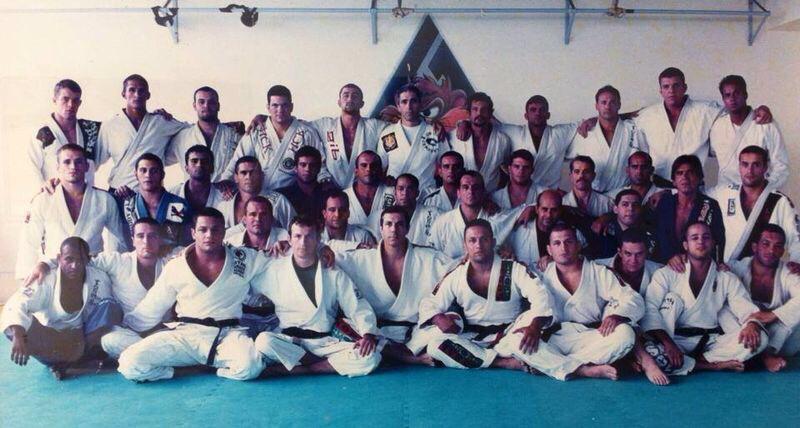
Evolving into the Jiu-Jitsu Lifestyle: Balancing Training and Wellness
“What does lifestyle mean to me?" Professor Jefferson says. "All of the time you put Jiu-Jitsu in your life. For example, acai is good for me because it can make my Jiu-Jitsu better, but it is also good for my health. For my entire life.”
"If you are surfing, you are learning mobility. Balance. You are adding mobility and balance to help you to train Jiu-Jitsu and help you with your cardio. If you are able to synchronize these things and connect your Jiu-Jitsu to surfing, it's great. Because you surf, you take acai; it's good for your balance, it's good for your cardio, and helps you in Jiu-Jitsu."
Professor Jefferson believes that when someone starts really getting into training Jiu-Jitsu, they begin to adopt the associated health factors like clean nutrition and a physically active lifestyle which starts to show a positive effect on their overall life.
"When you see that someone is living the Jiu-Jitsu lifestyle, you can identify them. You know - the guy is fighting Jiu-Jitsu. I know his lifestyle. His body, his shape, and how he talks with others. How he behaves in his life outside of the mats
Professor Jefferson discusses how Jiu-Jitsu students evolve to adopt the Jiu-jitsu lifestyle after they begin training in Jiu-jitsu. "When you are a white belt, you have one lifestyle. But it's different than the Jiu-Jitsu lifestyle. When you start learning Jiu-Jitsu in white belt, you don't understand everything happening. 'What is this guy talking about, acai? Training for three hours or sharing positions? This guy is crazy! I just come here to learn self-defense. That's it. I want to train Jiu-Jitsu.'
"But near the end of your white belt, and you are ready to get your blue belt, you start to understand some of the techniques." Professor Jefferson sees the student as beginning to observe in the group of training partners that the others are doing extra things outside of class. Supplementing their regular training with additional habits that support their efforts in class.
"For you to make your Jiu-Jitsu better than your other friends, for you to grow in Jiu-Jitsu, JUST Jiu-Jitsu is not enough. Because if you want to train better in the next week, you need to start changing your food.”
"After the weekend, if you want to train at your best, to go train on Monday, you can not drink beer all of the time," Professor Jefferson laughs, "Because on Monday you won't train good! Your friend has got a blue belt like you. If he doesn't drink beer on the weekend, on Monday, he is going to be better than you!"
When the small lifestyle changes a student makes reflect on their performance on the mats, and they make changes to account for it, then the adoption of the Jiu-Jitsu life begins. Professor Jefferson observes that when students see what their peers are doing to get that extra edge in their progress, they look to add these other factors to their regular practice of Jiu-Jitsu. This is the natural evolution of a person moving to live the lifestyle.
It’s been several years that Professor Jefferson has stayed in the United States without any trips back to his beloved Brazil while he has devoted 100% of his focus to establishing his GB schools in Colorado. When the time opens up, he is really looking forward to a trip back to the beaches of Rio de Janeiro.
When asked what the first thing he is going to do when he is back in Rio is, he laughs and answers, "I want to go to the beach. Get my surfboard. And stay all day surfing, relaxing, and drinking the real coconut and the real açai!"
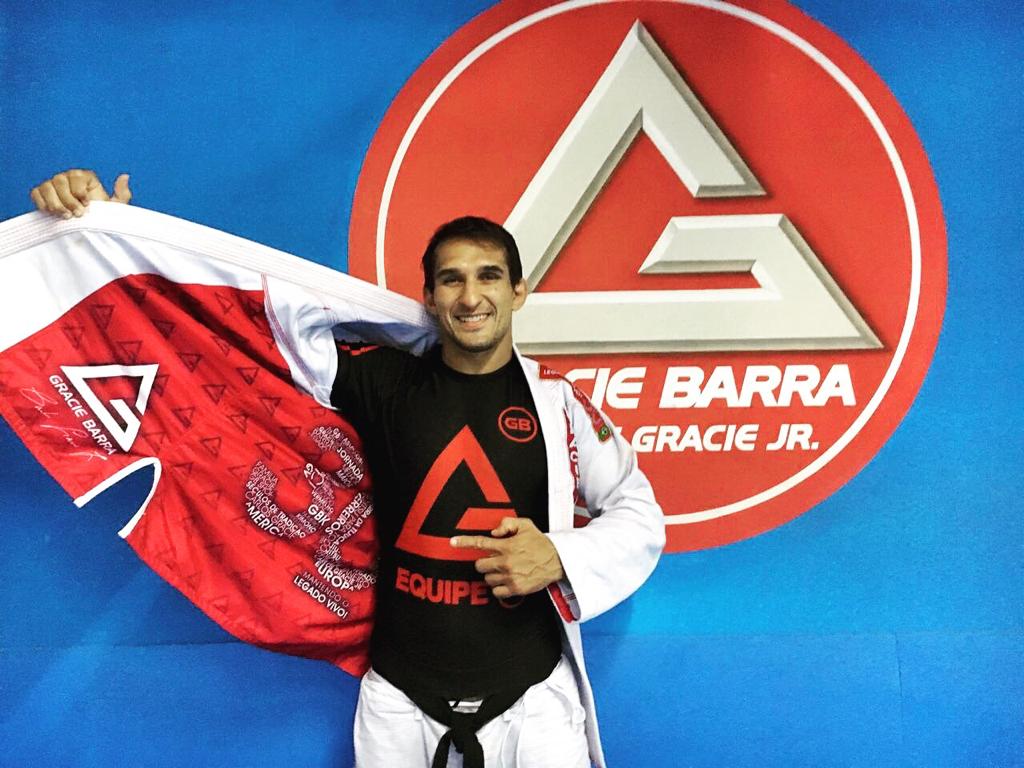
Writer: Mark Mullen, Gracie Barra black belt based in Brazil
Who we are
We prepare GB instructors, school owners & students with certifications, courses & tools to lead, grow & transform lives through Jiu-Jitsu.
Connect with us
-
Instagram
-
Facebook
-
institute@graciebarra.com
Copyright © 2026
